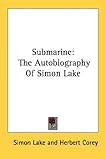 |
| American painter John Singer Sargent's portrait of Robert Louis Stevenson |
Today marks the 160th birthday of one of the most widely translated and beloved writers, Robert Louis Stevenson (1850-1894). His creative genius gave us Treasure Island, Kidnapped, and the dark speculative novel, Dr. Jekyll and Mr. Hyde. Though many know him as a novelist, he was also a poet, essayist, and travel writer.
The son of a devout Scottish Presbyterians, Stevenson by turns moved away from Christianity as he saw it practiced. Yet later in life while battling chronic respiratory illness and depression, he showed great courage in standing up for the rights and dignity of native peoples, particularly the Samoans, who he came to know and love through his residence in the South Pacific.
While in Hawaii and following the death of Father Damien DeVeuster, he went with great anticipation to investigate the rumors that the Catholic priest had contracted leprosy though intimate relations with female lepers while ministering at the leper colony on the Hawaiian island of Molokai.
Instead, the first-hand accounts of Father Damien's 16-year ministry of selflessness and resourcefulness profoundly affected Stevenson. A former Presbyterian missionary to Molokai, Charle M. Hyde, asserted that the rumors of of the priest's misconduct were true. In a letter to a fellow pastor, Hyde characterized Father Damien as "a coarse, dirty man" whose leprosy should be attributed to his 'carelessness'."
Stevenson hastily wrote a stinging rebuttal that left the author fearing he would be sued for libel. In the open letter, Stevenson condemned Hyde for an anti-Catholic bias that blinded him to the worth of Father Damien's work. He also warned Hyde that his own mission work might well become eclipsed by this condemnation of a true Christian saint. This last warning proved prophetic when the Catholic Church canonized Father Damien on October 11, 2009.
While Stevenson had great respect for Christian missionaries in the South Pacific and counted many as friends, there is some doubt that Stevenson was a Christian. His own pronouncements and family history seem to show that Stevenson who flirted with a good many beliefs and did not have a personal relationship with God.
In the Grace Evangelical Society article, "Robert Louis Stevenson: So Near, Yet So Far," author James Townsend portrays Stevenson's life-long tortured struggle to know God. In the end, the only way we may know for certain if Stevenson knew Jesus is to see him standing among the elect in Heaven. For my part, I hope I get to see him there, shake his hand, and thank him for many wonderful hours of reading his books.
If you have not had the opportunity to read his work, do so. If you haven't had the opportunity to read Treasure Island aloud to a child with all the right pirate voices, visit your local library and offer your services. In doing so, you will be firing the imagination of young minds and encouraging them them to read the work of truly great authors. Discriminating Christian parents can appreciate the Stevenson's unquestioned talent and still discuss with their children any ambiguities that may surface while reading his work.
Stevenson's struggles with Christianity show that Christian speculative writers must have a strong relationship with God so that evil does not eclipse the Gospel message. If you are a writer of Christian speculative fiction, listen to the still, small voice of the Holy Spirit as you write and confirm it in the Scriptures so there will be no doubt as to your witness.
As Marcher Lord Press publisher Jeff Gerke says in his book The Art & Craft of Writing Christian Fiction, "But in the end, you must let God be in charge of taking your fish and loves and multiplying them out to the people He knows needs them." That can only happen if you know Him.














No comments:
Post a Comment